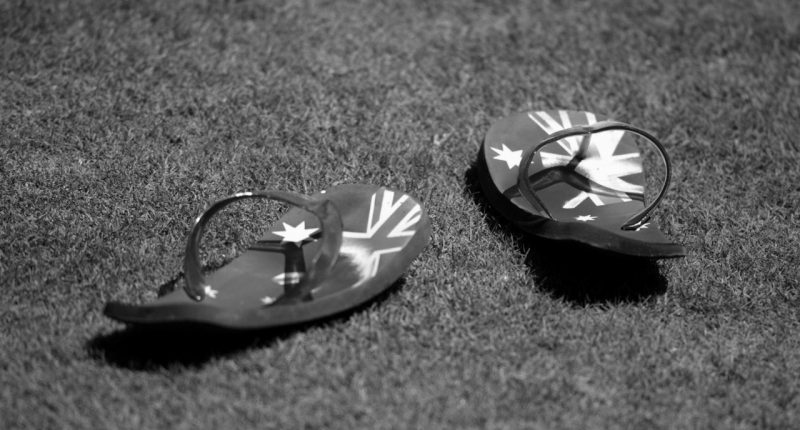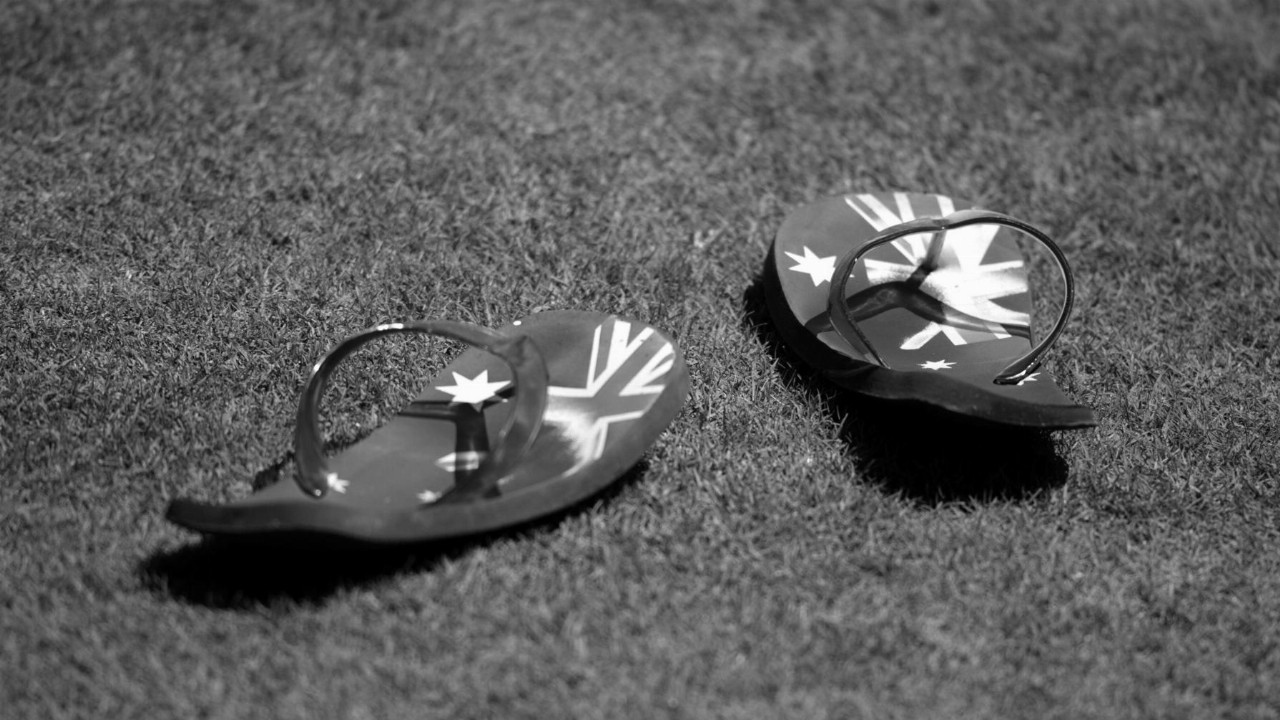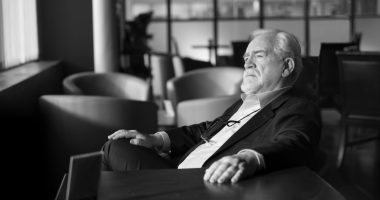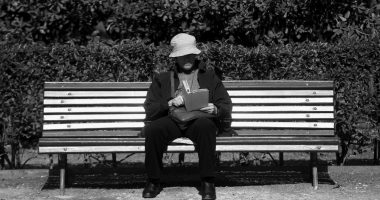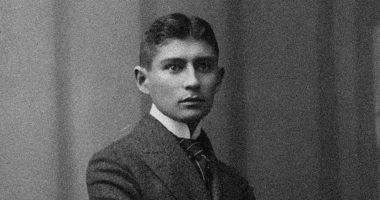As I write this review of Julianne Schultz’s new book, The Idea of Australia: A search for the soul of the nation, the country is in the middle of an election that is arguably a once-in-a-generation opportunity for we-the-people to reshape our political landscape.
The rise of the so-called “teal” independents (a reference to the colour they have come to use on their advertising materials) has opened the possibility of a serious challenge to the dominance of the two-party system at the Federal level by creating a crossbench of Greens and independents who together might control votes in the Lower House.
Some call this a hung parliament. I would call it a deliberative one.
Whether this happens remains to be seen, but the appearance of these alternative groups points to an inflection in our sense of ourselves as a nation suggesting that it can no longer be contained within the confines of the traditional two-party system.
So, what does this say about where we have come from, the ideas that have shaped us, and where we might end up?
Scientist and writer Carl Sagan once said that “If you wish to make an apple pie from scratch, you must first invent the universe”, and author Julianne Schultz has applied a similar logic in The Idea of Australia. She is trying to understand Australia from scratch, to understand its soul — as she has it in the book’s subtitle — and to do that she has gone back to not the origins of the universe, but to the origins of settler Australia.
In a mixture of personal anecdote and deep research, she traces what she sees as the key philosophical ideas and institutional practices that have shaped the nation and what emerges is a surprising consistency across generations.
This consistency can be traced to an ongoing failure to confront our relationship with First Australians, as well as the continued dominance of several key economic sectors in shaping the life of the country.
Of the former she writes:
It has taken a long time for the inconvenient truth to penetrate that, for all the many and real achievements of the past two centuries, Australia is only truly unique as home for 65 millennia to the world’s oldest continuing civilisation. …Until that truth is fully embraced, the paradox will prevail, erode the soul of the nation and leave Australia half-formed.
Of the latter she says:
The phrase ‘culture wars’ conjures an arcane dispute between ideological opponents about matters of interpretation and understanding, but at heart there is an undeniable political economy. And in Australia, that comes from the four economic foundation stones: mining, agriculture, banking and their handmaiden, the media.
The story Schultz tells really kicks into gear when she hit the 1980s, though that assessment reflects my own interests and biases, and your mileage may vary.
I have long been obsessed with the change the Hawke-Keating embrace of neoliberal economics wrought, this almost Shakespearean turn in our politics, of men (mainly men) driven by a desire to improve the material and spiritual life of a nation embracing the tools of the enemy — free-market economics — succeeding beyond their wildest dreams but setting in train forces that they could not control.
Shultz’s description of the neoliberal transformation of Australian society is note-perfect:
…Australian neoliberalism in its first phase included more checks and balances than the United States or Britain. Fairness, social justice, human rights, decent wages and income support tempered the early stages of the transformation. But, as it developed, the nod to the public good became more cursory. The change was profound. Politicians became spruikers for the market and economics became the sole lingua franca of policy. The state was there to moderate and ensure the market flourished, rather than be the custodian of the public good.
During the 1990s, as this change was unfolding, I was living in London, my first time overseas, and so the first time I really had to take stock of what it meant to be an Australian.
Having grown-up with a warm, familial feeling towards many things British, particularly its post-1950’s music and its long literary tradition, I was completely shocked to find the contempt in which most things Australian were held. Particularly amongst the upper classes, Australia was little more than a colony of uncultured reprobates.
What made it worse — if not laughable — was that I had arrived there in the early 1990s and Britain itself was flailing, still trying to make sense of itself post-Thatcher, with all the little-England prejudices that would eventually tear the country apart during Brexit already apparent, the glaring empire-shaped hole (as Salman Rushdie described it) at the heart of national identity, and outdated attitudes to gender, sexuality and race that they dared to accuse Australia of being uniquely guilty of.
I was astounded at a posh dinner I happened to be invited to one night to be confronted by a British diplomat who was shocked to hear that Australia allowed same-sex couples to travel on overseas postings together.
I told him I was proud of this enlightened rule, and he gurgled, what next? You’ll be able to bring your dog with you?
The image of Australia that persisted in Britain was one set in aspic from the 1950s and there is nothing like a dose of condescension from people who think they are better than you to activate your patriotic glands and get the hometown juices flowing, and I suddenly found myself thinking about my country in a completely different way.
When I came home in 1995, I entered a PhD program and my topic was the role of the intellectual in Australian life, a subject that arose from a desire to challenge what passed for received wisdom about our alleged lack of interest in ideas and the life of the mind. It was a cathartic and eye-opening four years of research and writing, and it has influenced everything I have written since.
It has influenced how I read all accounts of “national identity”, and I think sometimes Schultz’s falls into presumptions I would prefer interrogated — about our alleged “averageness”, for instance. Or that she had contextualised matters like an obsession with sport or a failure to apprehend the past as something common to many cultures, not merely indicative of Australians.
I wouldn’t call these things minor complaints, but they certainly don’t outweigh the depth of thought that characterises the book more generally.
In the years that have followed, with the Howard ascendancy, and then the Rudd-Gillard self-immolation, and the last three years of a Morrison-led Coalition government during a period of pandemic and climate-related fire and flood, our sense of ourselves has been thrown every challenge imaginable, and Schultz analyses it all clearly.
As the pandemic unfolded, she writes, “Australians did not take long to amplify the simmering but unresolved discussion about what sort of nation this is and might be,” and that “in the early months of the first lockdowns, there was a sense of urgency and collective readiness to do things differently.”
We did well, too, and this was not luck, she notes, but was “managed by design”, a welcome challenge to the oft-quoted line from Donald Horne that we are a lucky country ruled by second-rate people.
Nonetheless, she notes, the possibility of “doing things differently” was undercut by the fact that “those with the controlling hand on Australian politics and public life were not keen on informed and nuanced discussion that might require action or disrupt the status quo.”
For me, this observation is the heart of the book, that a hardcore reactionary spirit is baked into our key institutions. As I’ve already noted, Schultz, like a lot of Australian intellectuals, falls too heavily on the idea of the “averageness” of the general population, but at least this is leavened with a clear analysis of the way in which the worst of Australia often comes from the top down and not the bottom up.
Schultz shows clearly how, particularly since John Howard, our public service and associated institutions have been loaded with “jobs for the boys”, appointments that bend and shape our national life in favour of the status quo, all supported by a media that stifles as much debate as it encourages and that remains, unequivocally, the voice of capital.
The political parties themselves, with their arcane pre-selection processes, are a big part of the problem, and they see to it that new and original voices are kept out. John Howard may have preached the litany of the Liberal Party being a “broad church”, but he did so as he pulled up the pews from the centre and the left of the transept.
In more recent times, with overt interference from Liberal leader Scott Morrison, the “broad church” has taken on a distinctly Pentecostal flavour, further diminishing internal diversity.
Horne was half-right: many of our leaders are second-rate, and what I take away from Schultz’s book is that this is largely because the system is designed to promote and reward that second-rateness. This comes through repeatedly as she recounts the cultural and institutional history of the nation, to the extent we are forced to wonder whether change is possible.
The present moment suggests the answer is yes, I think, and so much of that possibility is being led by women.
The rise of teal independents in wealthy, blue-ribbon Liberal electorates is one indication of this, and we may be witnessing a massive work-round of the traditional pre-selection blockage.
Schultz also points to the emergence of women into prominence around the March for Freedom, Justice and Hope movement, women like Grace Tame, Miriam-Rose Ungunmerr-Baumann, Rosemary Kariuki, Isobel Marshall, and Rose Batty, a movement that has even managed to make some impact on the mainstream media and allowed woman’s voices to rise in that male-dominated space.
The book is at its best — and it really is very good — as a record of the forces that have shaped us as a nation, and I am particularly appreciative of the way in which Schultz has focussed on the material and institutional nature of our development, her insightful take about the centrality of mining, banking, agriculture, and media.
The book’s analysis of the role of traditional media is particularly good, though I think she falls into some reductive thinking around the role of social media, which I see as a much more positive force than she (and many others, to be fair) do. So, although at one point she allows that “Lockdowns reminded us of the importance of the local, and social media was its powerful agent,” the more common view she cites is that of social media giving “the mob a new way to shout anonymously and without fear of consequences.”
I think this speaks to a tendency many critics have to impose a hostile idea of social media on public discussion, itself part of a more general failure to recognise the way in which digitised communication has transformed not just media, but our entire understanding of work, changes that are still playing out and that I think make moot any attempt to pin down a national character, any sort of big-picture summation of who we really are or who we might become.
To make the obvious point, the movement around the March for Freedom, which Schultz rightly lauds, would not have the impact it had without social media, and the overall social analysis in the book feels like an analogue take on a digital world.
To put it another way, just as the teal candidates represent a renewed sense of community and dissatisfaction with the status quo, social media, particularly Twitter, is also indicative of a need to reconnect and find ways of managing the irreducible diversity of a contemporary nation looking to build a life in common.
We use the tools we have.
There is a trap waiting for anyone trying to summarise or encapsulate the nation, that of seeing what we want to see and ignoring the bits that don’t fit the story we want to tell, bits that might be defining for others’ experience of the nation, and I do wonder what it might even mean to talk of a country having a soul.
In the end, though, Schultz avoids this trap, and her concluding chapter is a moving tribute to the power of diversity and to finding a place for the disparate experiences of life on this island-continent. What emerges, I think, is a vision, not of a single soul, but of many souls together.
She doesn’t directly say it, but if you want a three-step plan for how to proceed, it would look something like this: a republic grounded in recognition of First Peoples; a parliament that overcomes the power of the major parties and looks more like the diverse nation it represents; a media freed from the corrosive influence of moguls and managers who wield their soft power in the name of the few and not the many.
If we cut each of these guy ropes that hold us down, the better souls of our nation might finally rise.
Tim Dunlop is writer based in Melbourne. His most recent book is “The Future of Everything: Big Audacious Ideas for a Better World”. He runs a regular newsletter, and you can subscribe here.
